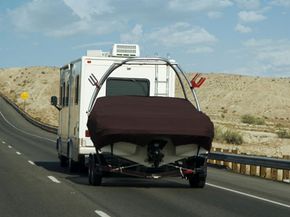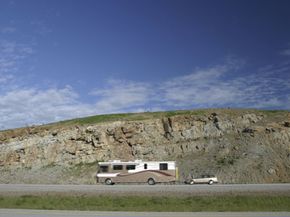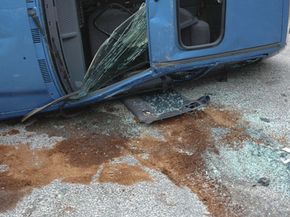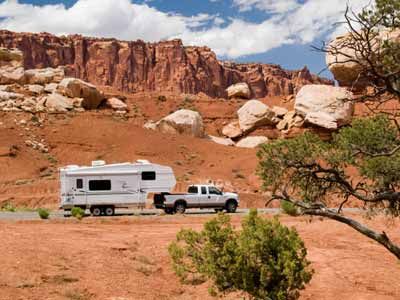The charm of the highway appeals to a wide swath of people. While some travelers opt to purchase a brand new RV, there's also room for do-it-yourselfers. Converting an old bus into an RV has become an increasingly viable and popular option.
It's true you can make your own RV from an old bus for a fraction of the cost of even a used factory-made RV. One enthusiast, Jake VonSlatt, purchased an old school bus from eBay for around $2,000 and chronicled his conversion process online. With an environmentally-friendly mindset, VonSlatt used as much recycled material as possible, including salvaged and demolished materials, as well as used and discarded items from friends and the Internet. Another bus converter took the green aspect even further, converting the bus to run on a diesel-vegetable oil mixture.
VonSlatt's converted bus was similar to others like it in that it was a unique creation borne from the owner's mind. This is perhaps the biggest reason that bus conversions has caught on among some RV enthusiasts -- converted buses are one of a kind.
Among the most popular (and often cheapest) buses to convert are old school buses. In most quarters, these conversions are called schoolies. City transit buses and old motor coach company buses that have been replaced by newer models and fallen out of use are also popular candidates for conversion. There are several companies that specialize in converting buses into RVs for people who aren't sure in which direction to hold a hammer. These professional conversions often look just like the interiors of manufactured RVs. They're usually cheaper than a new RV, but more expensive than converting a bus yourself. What's more, most people who convert buses into RVs are handy to begin with and prefer doing it themselves.
To be sure, there is a degree of difficulty to any bus conversion. Most require a complete strip down of the interior, removing all seats and other obstacles, before insulating the inside of the exterior walls (after all, buses weren't originally made for sleeping). After this, the paneling process begins, with walls and floors added. Bedrooms, cabinets, bathrooms and appliances and fixtures all have to be installed. New plumbing and energy sources (for cooking and lighting) have to be installed as well. After the bones are laid, it's time to install the finishing touches like wall covering, upholstery and flooring.
Converting a bus into an RV is a long process, and typically a labor of love. It's far too detailed to chronicle here, but fortunately, there are plenty of resources on the Internet dedicated specifically to posting advice and information on bus conversions (you can find one link on the next page). Mr. VonSlatt offered a piece of advice: Finding a free used travel trailer through a site like Freecycle or Craigslist not only yields reusable appliances designed specifically to maximize spaces -- like sinks and couches - but enthusiasts often find that tearing an old trailer apart is the best learning experience one can undertake to prepare to convert a bus [source: VonSlatt].
Whether you choose to go all out and purchase a brand new motor home with all the bells and whistles, convert a bus into an RV yourself, or something in between the two, make sure you're properly insured and aware of variations among state regulations. And most of all, be sure to take it easy as you ease on down the road.
For more information on RVs and other related topics, visit the next page.






